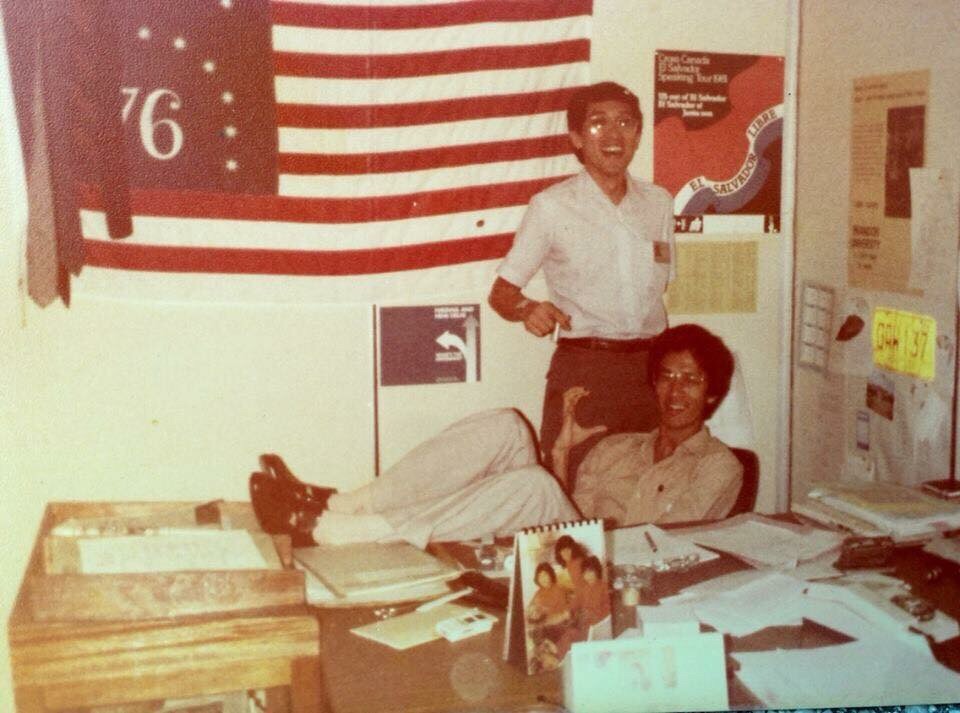Every Christmas, Bilahari Kausikan receives a greeting card from his old PhD supervisor which bears the message, "Where is the rest of the dissertation?"
Yes, indeed — this Ambassador-at-large (one of six in Singapore) never completed his doctoral degree in international relations, despite being in the U.S. on a government scholarship to do so.
How he got his PhD scholarship is an interesting story of compulsion, which he shares with Mothership.sg at a recent sit-down at the Ministry of Foreign Affairs (MFA):
"But in those days, if you are admitted to the university, there was a balloting system. If your number came up, you can defer (National Service) and do your university (studies) because there were very few people going to university in those days and I guess they needed them lah, you know?
So, I got deferred after about six months I think. Then I went back, and... then my old professor when I was in (the) then-called Singapore University, the late Wu Teh Yao, practically forced me to apply for the scholarship. And you know because I like him, I respect him, all right lah, you ask me to do it, I do it lah. And to my surprise I got it.
Then I went to do the PhD, and... I did all the coursework, I passed all the qualifying exams and I was even writing my dissertation. A couple of chapters were written. Then I had an epiphany, you know? I said if I really don’t wanna teach ah, why am I doing this? A PhD is an academic straight union card, that’s all, right? So, to hell with it lah, go back."
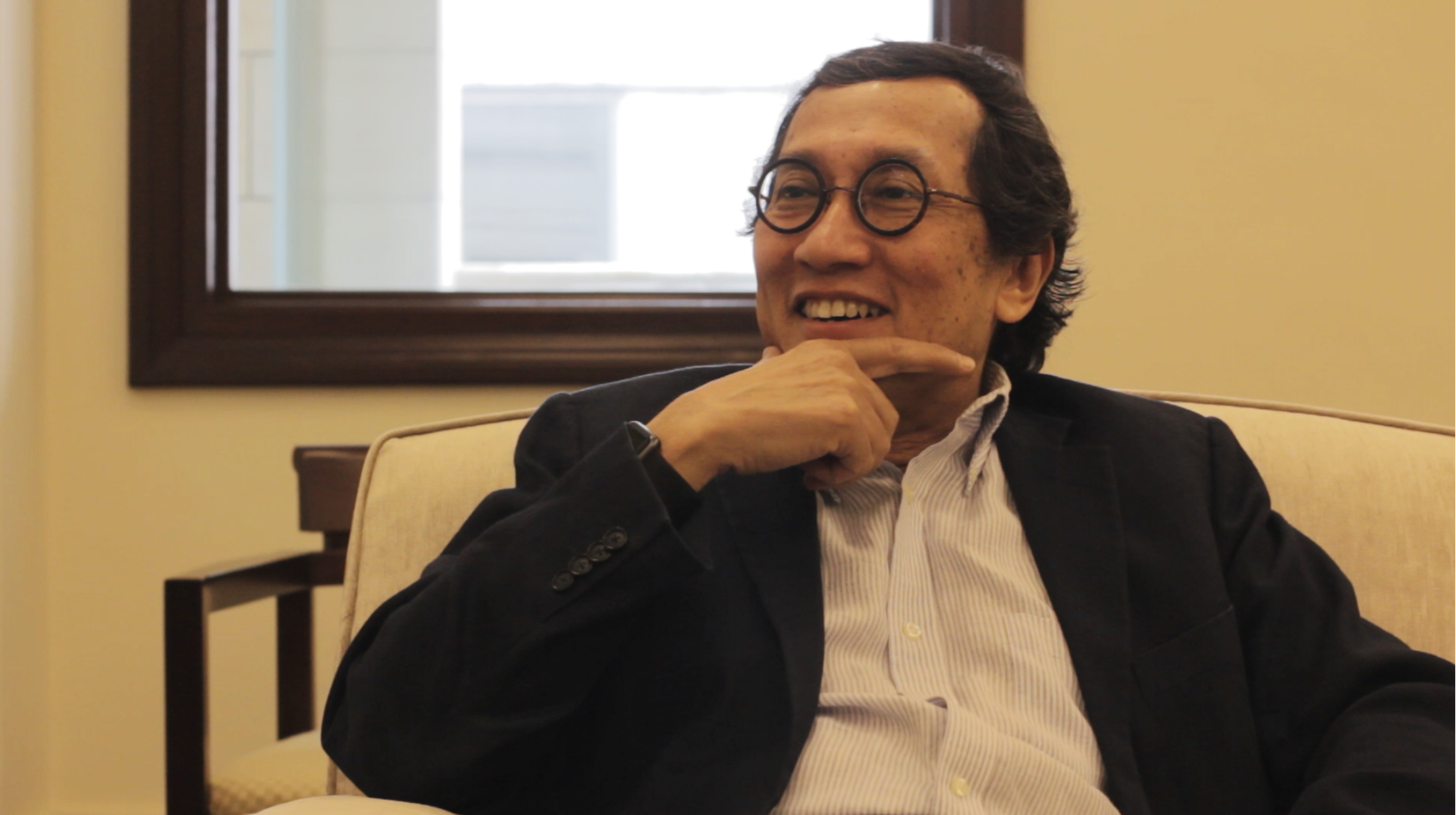 Photo by Goh Wei Choon
Photo by Goh Wei Choon
During this time, as a scholar and student, Bilahari toyed with writing as well — secretly submitting articles to The Straits Times under the pseudonym "Bee Kim Hee".
"I didn't ask the PSC, of course," he says with a chuckle. "Now I've told them lah. I mean, what can they do now, right?"
After that, Bilahari shares, came the small matter of his eight-year bond with the government. He says he never planned to abscond from serving it out, especially since he didn't have the money to pay it off, so when the Public Service Commission went into what he describes as "default mode" and threatened him with spending the time in the army, he was all too happy to accept.
"I like the army, you know, by the way — I was perfectly happy with them," he says cheerily. "I said (in response to the threat) good, I liked the army before I started this PhD work."
Unfortunately, the PSC had other ideas — they pitched him to the Institute of Management.
His response: "Okay, but you realise I know nothing about management theory; so you want me to destroy young minds? Fine, you know?"
This back-and-forth continued until finally then-chairman of the PSC, the late Tan Teck Chwee, piped up for the first time to ask him outright where he wanted to work.
Bilahari, who decided the only thing he knew anything about was international relations, opted for the MFA, where he remained ever since.
It's not the most straightforward choice. His late father was one of Singapore's first generation of diplomats, and warned him against the stifling bureaucracy he would likely face. He had sadly passed on by the time a young Bilahari made this life-changing career decision, the year he enlisted for national service.
Back to the MFA, Bilahari often says he "forgot to leave" despite only intending to stay for the eight years -- to the tune of some 30 years, before retiring and taking on an annually-renewed contract as an Ambassador-at-large.
Simi Ambassador-at-large?
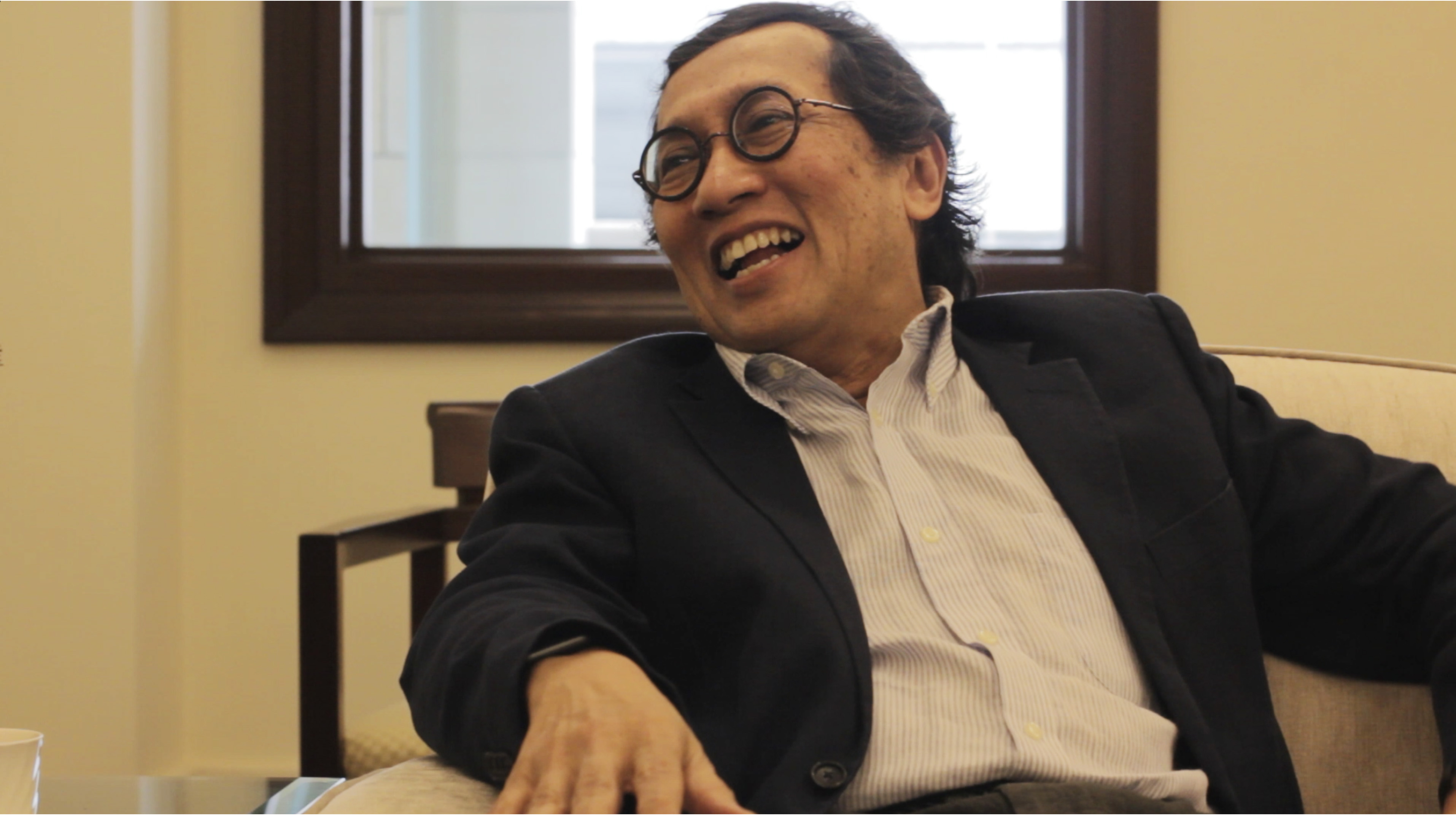 Photo by Goh Wei Choon
Photo by Goh Wei Choon
What does an Ambassador-at-large do, anyway, we wondered — especially since there's been confusion in recent months, chiefly triggered by Bilahari's unabashedly-cutting Facebook posts on, well, pretty much everything that goes on outside our tiny borders.
Here's how he explains it:
"If you're an ambassador-at-large, you have a title. But that title pertains to what you're contracted to do. For example, all our contracts are contracts for service. That means you're a gardener, you're hired to cut the grass; I'm called 'gardener' while I'm cutting the grass, you know? When I'm not cutting the grass, you can call me 'Mat', you know, or anything.
So we have six ambassadors-at-large. We are allowed to appoint six without reference to Cabinet, because Cabinet is the appointing, approving authority for ambassadors. It serves two purposes — one, it keeps people who are deemed to have a certain experience or expertise within the system even after they retire so you can call on their experience or expertise as and when necessary. Secondly, from time to time, we are given a task — cut the grass, clean the longkang, you know?
And for that purpose, we are ambassadors, otherwise, you are a private citizen. You can do what you want, you know? You are not bound by civil service rules. I mean, for the time you are doing something on behalf of MFA, of course you are bound by civil service rules lah. But others, you are a free man. It's not a bad job, you know, if you can get it."
Capiche? That's also why we were sitting with him in a brightly-lit room on the second floor of the Ministry's winding maze of a complex — he does have an office there, and goes in every day to, well, cut grass.
"Usually I’m here in the morning lah. And then in the afternoon I go and do my own thing. Come in the morning, cut grass, as long as the grass is cut, it doesn’t matter whether you take one hour, or you take one week, as long as the grass is cut that’s what they pay you for. To cut grass," he says.
Facebook: the method to the madness
 Bilahari's current Facebook profile picture
Bilahari's current Facebook profile picture
We move on to the place where most people first learned who he is — from Facebook.
On November 1, we counted some fifty links Bilahari posted to his Facebook page — a few of which contained his own additional commentary, which means he actually does read every single article he shares.
"Ya. Just now I mentioned I got a lot of time to go and read what," he responds matter-of-factly when we asked if he realised just how much material he goes through in any given day.
A commentary from the New York Times that's maybe 4,000 words long? He calls that "very short". What he defines as "medium" in length: the National Day Rally speech — that's an insane 14,000-plus words, by the way.
"The things that appear on Facebook — which I take from Facebook — are very short, you know? So it doesn't take very long. Even when people say it's a long read, it's not really a long read. Everything down there is very short. That is an advantage and a disadvantage.
And in any case, I read quite fast... (we asked how fast) I don't know, maybe uh, 10 or 15 (articles in an hour)?"
What's considered to be long, for Bilahari? "A long article is a short book lah."
K.
We asked him to explain his approach to Facebook — which few of his followers are likely to be able to keep pace with:
"I really started doing this because I think our compatriots are not sufficiently interested in any form of our international affairs. Then I found that there is much more on Facebook generally than, you know, what somebody had for lunch or that kind of thing right?
So I thought it's a pretty good vehicle (as compared with Twitter). I'm not going to do Twitter. How can you say anything meaningful in 140 characters, you know? 'Good morning, how are you? I had the hotdog for lunch.'"
Not all of what he shares is sophisticated and geographically-significant commentary, though —
"But in order to sustain (younger people's) interest, you have to put some other things lah. Some odd things that happen here and there, for which there is a pretoria and then I’m interested in other things, like snakes, that’s self indulgent. Snakes and reptiles and things like that. Animals."
All the Prime Ministers
Since Bilahari's time at the MFA cut across all three Prime Ministers we have had thus far, we decided to ask him to do a "compare and contrast" among them.
Lee Kuan Yew: PM from June 1959 - Nov 1990
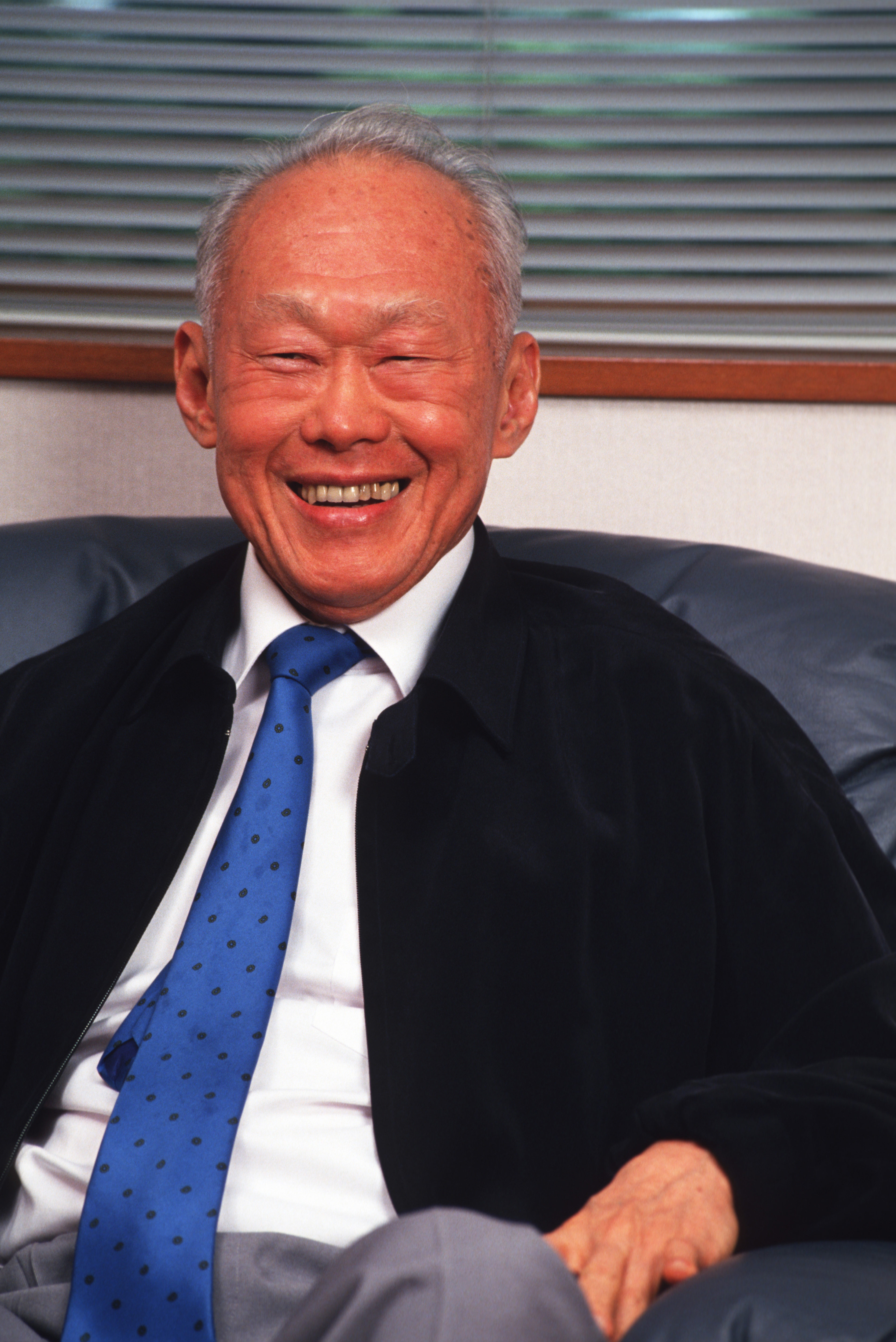 The late Lee Kwan Yew in his office in 1994. (Photo by Peter Charlesworth/LightRocket via Getty Images)
The late Lee Kwan Yew in his office in 1994. (Photo by Peter Charlesworth/LightRocket via Getty Images)
"A person who was very intellectually curious, and therefore listened a lot — asked a lot of questions and listened. He didn’t necessarily agree with you and if he didn’t agree he would challenge you but he didn’t want people to, at least that’s my impression, just agree with him.
He was thirsty for knowledge and was not hierarchical in where he sought knowledge. He sought it where he thought he could get it, you know?
Of course the obligation is not to waste his time, if you don’t know, say you don’t know. Don’t try to tembak because that would get you into serious trouble. Because you waste time, you know? If you don’t know say you don’t know, and say you will find out. Or if you know, say what you know, and as direct and in as few words as possible."
Goh Chok Tong: PM from Nov 1990 - Aug 2004
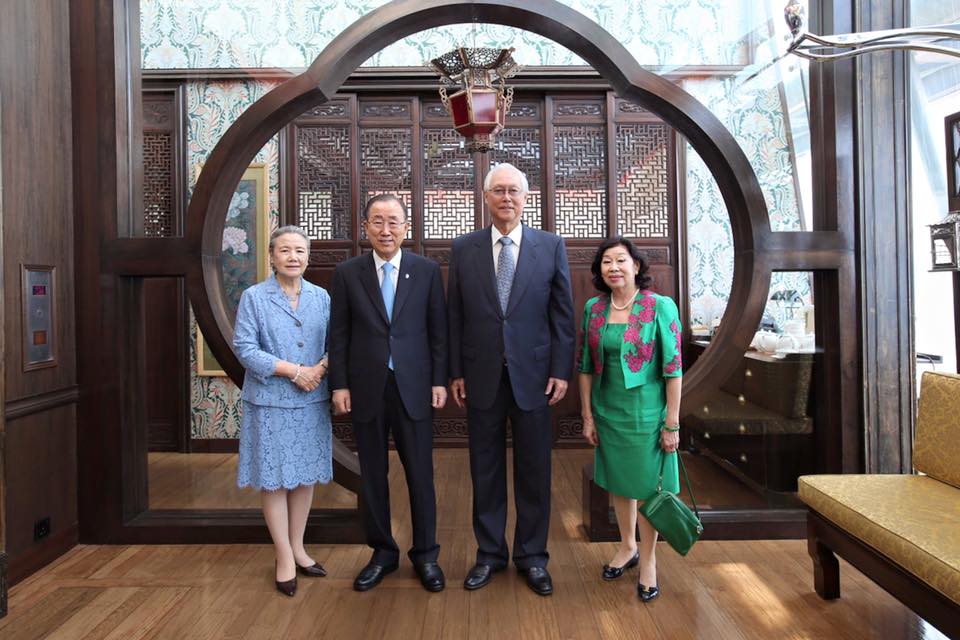 Source: MParader Facebook.
Source: MParader Facebook.
"A more sociable kind of person. If you travel with Mr Lee, there are occasions where you would have meals with him. But they were occasions for him more or less to find out things.
Mr Goh Chok Tong always made it a point, actually, to have meals with his delegation, if there was an embassy or high commission, with the staff there. And it was much more, it was also to find out what they were thinking and so on but also to get to know Singaporeans that he would not otherwise I guess, meet, you know?"
Lee Hsien Loong: PM from Aug 2004 - current
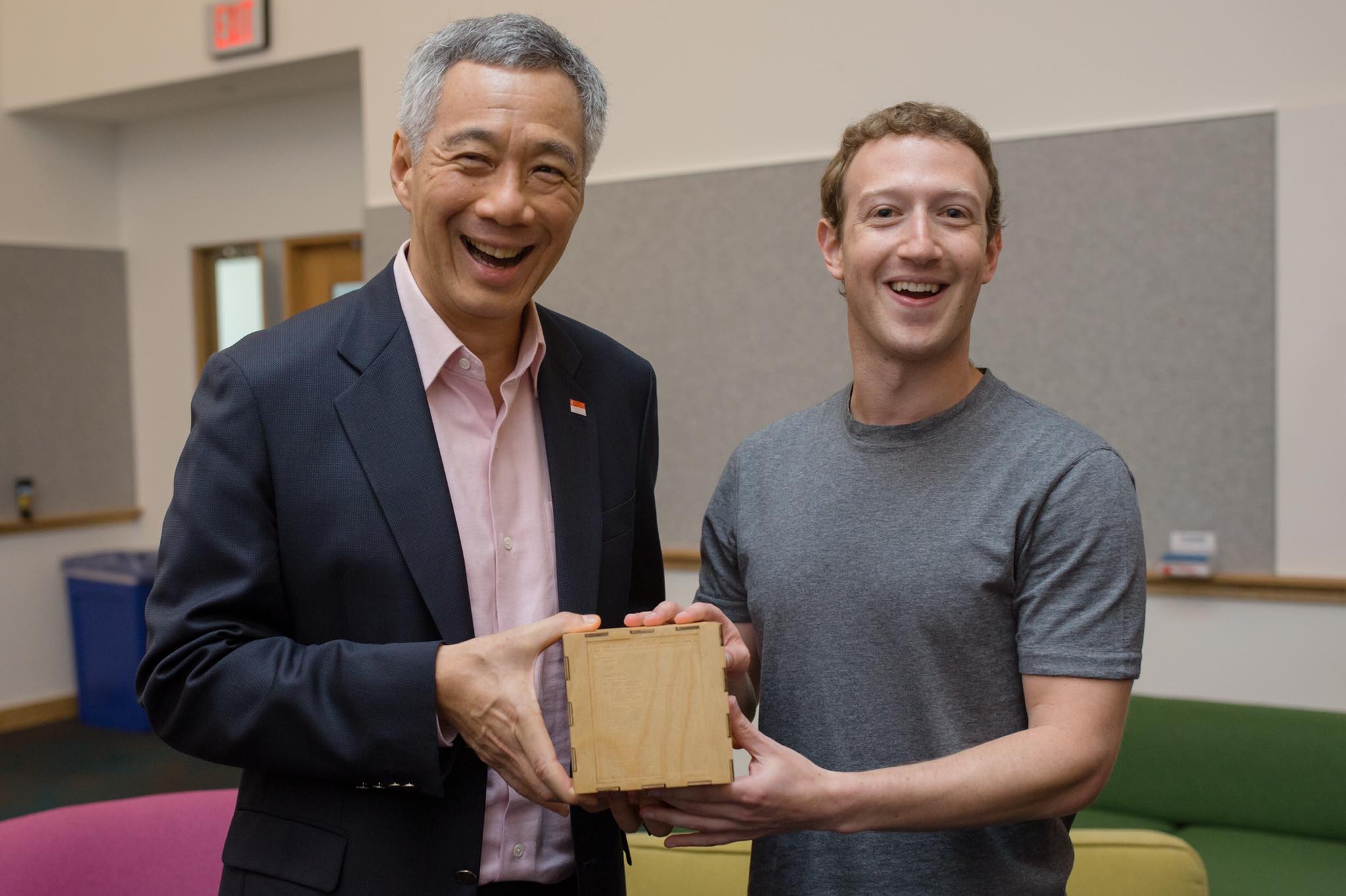
"(He's) the easiest person to travel with because he is an extremely self-reliant person. You know he’s extremely computer-savvy right?
I can tell you one story – there was a meeting where something went wrong with his computer. And when we travel with the Prime Minister there is normally a IT specialist — where Mr Lee Hsien Loong is concerned, he is completely irrelevant, you know? The rest of us need him but to him, he is completely irrelevant. By the time the IT specialist went, PM had already fixed everything and gave the guy a short lecture on how to do things, completely demoralising him so I had to buy him a whisky to cheer him up. I think that’s the difference."
Wow.
Reading, walking, drinking whisky and cutting grass
 Source: Bilahari Kausikan Facebook.
Source: Bilahari Kausikan Facebook.
So what does an MFA grass-cutter do when he's not cutting grass for the MFA, and not on Facebook?
Bilahari says he reads... "real books also lah". In particular, he's a fan of classical mystery novels, which he doesn't feel guilty about reading "at all", he stresses. We laugh.
He also walks and enjoys hiking in the mountains when on holiday — in fact, he doesn't have a driver's licence, nor has he ever felt the need to have one.
"There's such a thing as taxi, which is very cheap in Singapore, and easier and easier to get, because of Grabtaxi and all that. There's MRT, which although it breaks down, every bloody MRT breaks down lah. Singaporeans are bloody spoilt, horrendously so. And then there's bus, and there's always your two legs, what," he says.
On hiking, his favourite spot is Japan, and also Tasmania, because he believes it is now full of disgruntled bears unceremoniously roused from hibernation by global warming:
"Everywhere you go down there, big sign: Beware of the Kuma (bear, in Japanese). (They) Even block out some trails, you know? The Japanese being Japanese are very meticulous, this was 2 years ago; I went then I saw the sign: Beware the bears. Got barbed wire. I thought I try and be clever... go and circumvent the trail lah. Then they put guards, okay lah, because they don’t want the police to be eaten by bears lah. Not good for the trail lah huh."
But these days he also goes on walks when the weather is good (read: not too hot) — he tells he used to walk from where he lives, near town, to his mother's house in Upper Serangoon, about 12 kilometres in distance; "not far" by his definition.
Bilahari, the human, the dad
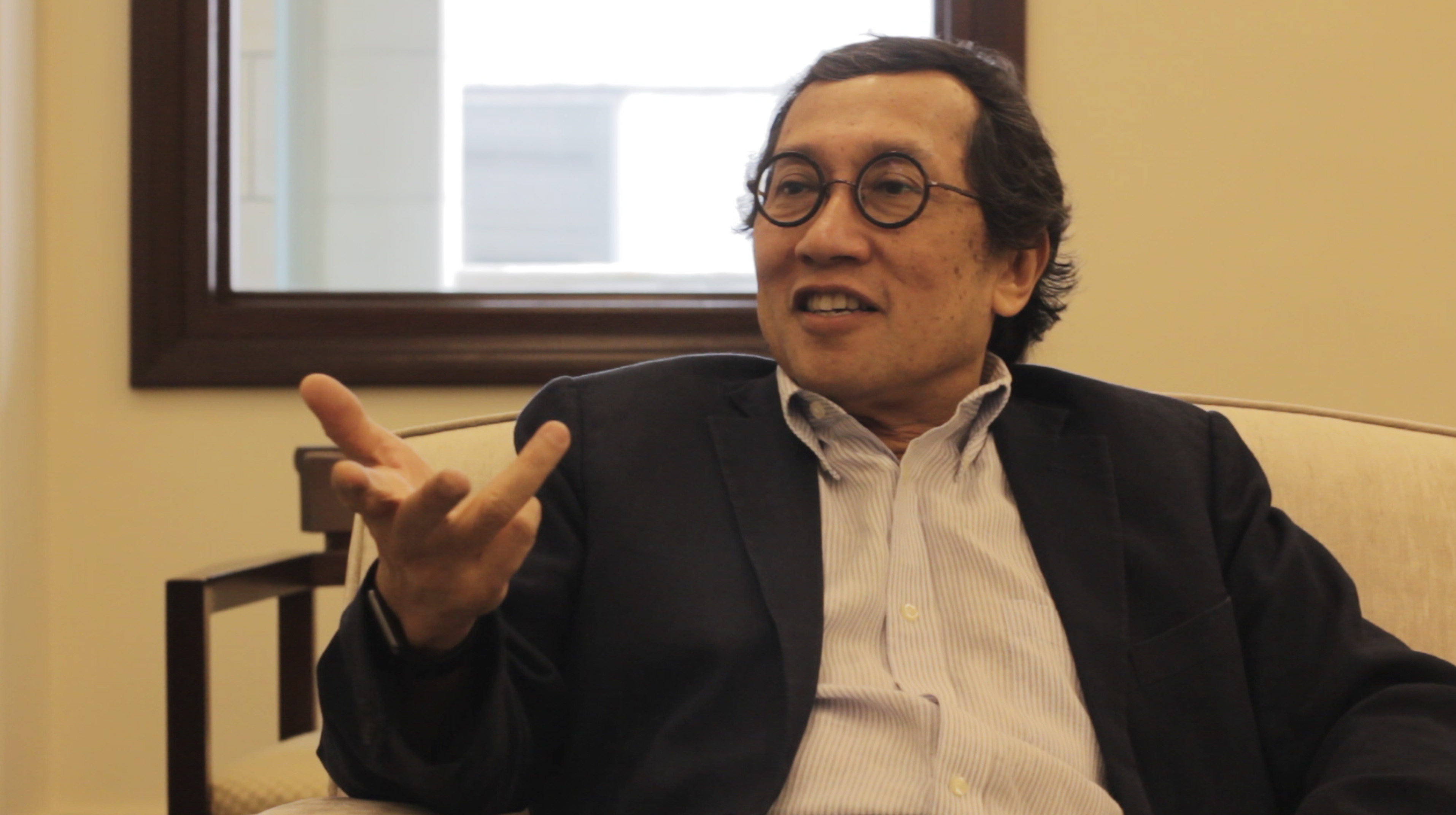 Photo by Goh Wei Choon
Photo by Goh Wei Choon
All these things said, Bilahari does have soft spots — and we do see it, albeit in hints.
Take his fourth IPS-Nathan lecture, for example, on human rights, where he says working on it involved the greatest amount of effort for him, as well as his book foreword, where at the end he dedicated it to his two children, to whom he wrote these were the things he "wanted to tell" them.
We asked if his teenage daughter might follow in his footsteps — he responds that he has "absolutely no idea".
But he does know she is kind of embarrassed by her *ahem* association with him:
"She does Southeast Asia studies, and she had promised her teacher that she would not ask me for any help — which she would not have asked anyway, knowing her, right? And she is completely mortified because her teacher wants to invite me to talk to her class. And I had to promise her (his daughter) I won't."
He adds that he does pity her, especially when her teacher keeps giving his speeches to her class to read, claiming that she "suffers a lot" for it.
The world with U.S. President Trump, according to Bilahari
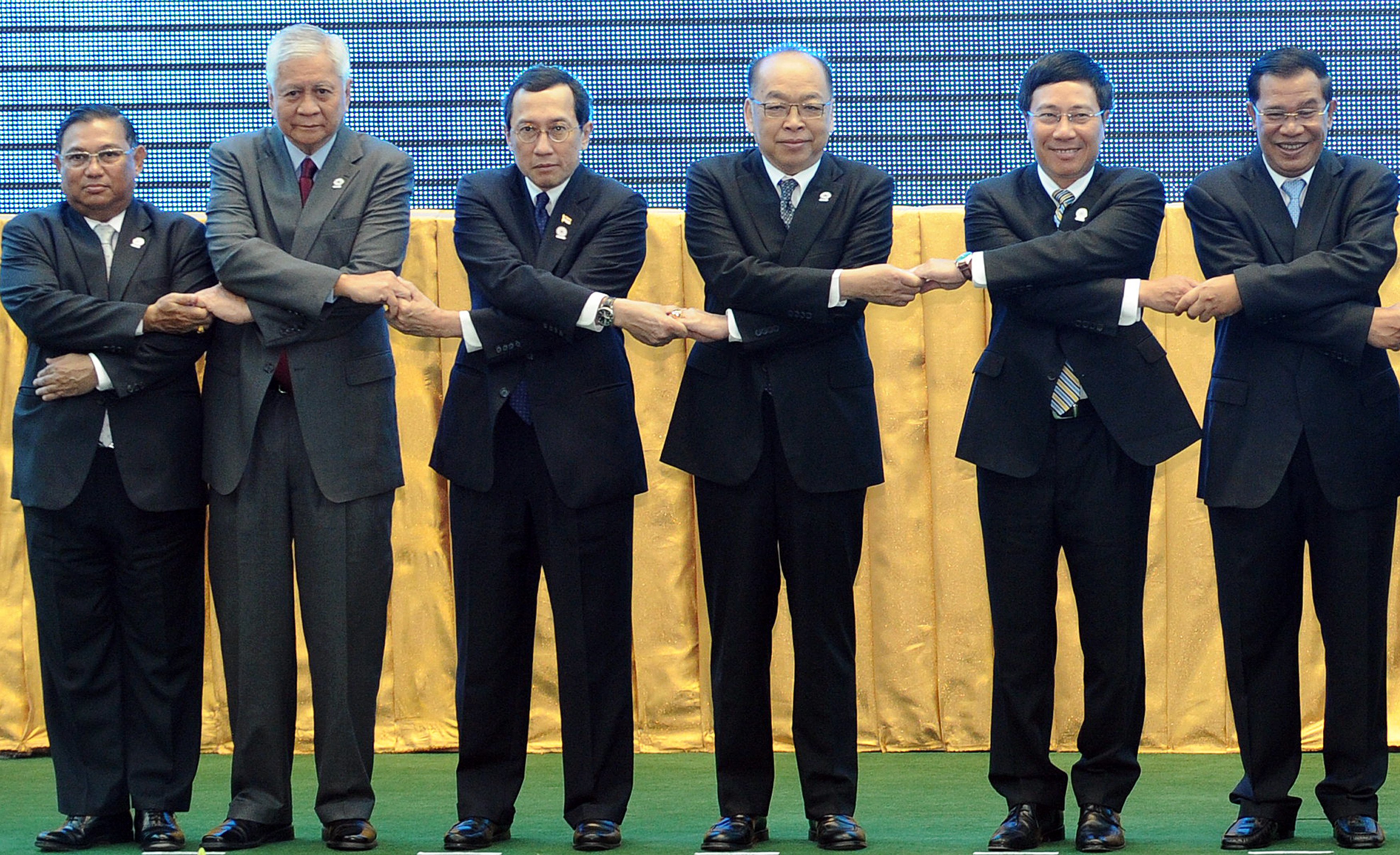 Bilahari Kausikan during the opening ceremony of the 45th Association of Southeast Asian Nations (ASEAN) Foreign Ministers' Meeting (AMM) at the Peace Palace in Phnom Penh on July 9, 2012. (Photo by Tang Chhin Sothy, AFP, Getty Images)
Bilahari Kausikan during the opening ceremony of the 45th Association of Southeast Asian Nations (ASEAN) Foreign Ministers' Meeting (AMM) at the Peace Palace in Phnom Penh on July 9, 2012. (Photo by Tang Chhin Sothy, AFP, Getty Images)
We met the Ambassador-at-large before November 9, when the U.S. bestowed the world with a new President-elect, billionaire Donald J. Trump.
Bilahari has gone on to share his take on its impact in the region and in Asia on the whole on Today and in Nikkei Asia, where he makes the following points, in brief:
- The fate of the Trans-Pacific Partnership lies with the lame-duck Congress, which he doubts will pass it even though Republicans are traditionally pro-trade.
- Trump's election represents the growing global phenomenon of anger and betrayal people feel toward the elites of society, a reflection of the widening gap between citizens and the institution, and disillusionment with how things are done.
- There is great uncertainty in what Trump will choose to do regarding trade, since he has during his campaign repeatedly said he will be "America-first".
- It's likely Trump will take quite a transactional (acting immediately for immediate benefit) position toward Southeast Asia, which regrettably doesn't work that way in a region that values small, incremental steps to build relationships. Not sure what this portends for ASEAN-US ties.
Meanwhile, we reckon Bilahari will be sipping on bourbon while waiting to see what happens, and you can bet he'll let us know what he thinks about all of it.
Bilahari’s book, “Dealing with an Ambiguous World”, is available at major bookstores in Singapore.
Read more Almost Famous interviews:
The man who hunted down books for Lee Kuan Yew
GIC Group President Lim Siong Guan: a workaholic 69-year-old who takes the MRT
Rather Famous: Joseph Schooling goes one-on-one with Mothership.sg
20 years of living in the U.S. later, S’pore’s first Googler still speaks fluent Singlish
Top photo courtesy of Kenny Chan.
If you like what you read, follow us on Facebook and Twitter to get the latest updates.
If you like what you read, follow us on Facebook, Instagram, Twitter and Telegram to get the latest updates.
